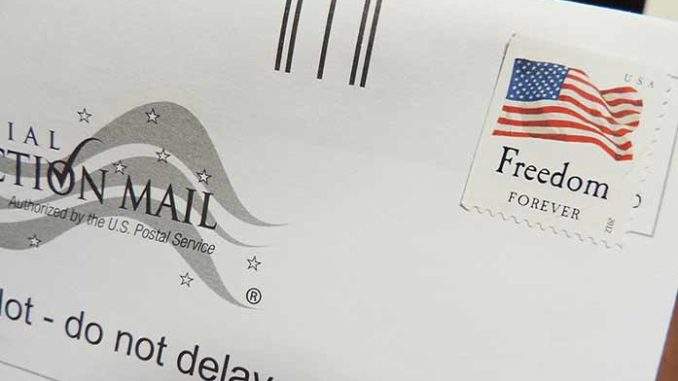
A whistleblower who spent several days inside the Maricopa County Tabulation and Election Center (MCTEC) says voters of all parties should be concerned about vulnerabilities in the voting system and some internal processes which appear to create security issues.
 Earlier this week Arizona Daily Independent reported on the whistleblower’s concerns with what appeared to be lax procedures for backing up the county’s central count tabulators. The concerns included what appeared to be no chain of custody or steps to preserve the integrity of the data on the external back-up hard drives, which were placed in easily identified orange cases.
Earlier this week Arizona Daily Independent reported on the whistleblower’s concerns with what appeared to be lax procedures for backing up the county’s central count tabulators. The concerns included what appeared to be no chain of custody or steps to preserve the integrity of the data on the external back-up hard drives, which were placed in easily identified orange cases.
“I would think it should be just like handling physical evidence at a police crime scene,” the whistleblower said, adding that the hard drive was likely taken off site for security. “But there was apparently no witness to the back-up, no logging or sealing of the hard drive.”
The whistleblower, however, said they also made some “concerning” observations with how the ballot adjudication process took place.
Adjudication is required when the Dominion Corp.’s Democracy Suite 5.5-B voting system used by Maricopa County senses an error in reading a ballot. In past elections this would typically involve a torn or crinkled ballot, or one that had some type of extraneous mark.
But a judge heard testimony last week in a trial for one election challenge lawsuit that county officials knew early on in the voting cycle that the recommended Sharpie pens were causing bleed-through on the ballots. And although officials insist the ballots were designed so bleed-through wouldn’t matter, they did acknowledge the reports that many tabulation machines had issues at times accepting ballots.
Add to that a much higher number of mail-in and early in-person voting than ever before and a new electronic adjudication process, and it wasn’t long before the adjudication ballots got stacked up, the whistleblower said.
And that is where things got especially concerning, according to the whistleblower.
The delays and lag time became an issue at MCTEC, especially for the Dominion personnel who started discussing ways to “work around” the back log and speed up the process. One of those ways appeared to be going into the files containing batches of ballot images and splitting the files into smaller batches, the whistleblower said.
Once done, the subfiles would be put back into the larger main file. The problem for the whistleblower is that there appeared to be no check and balance to ensure those smaller files were properly accounted for once adjudicated.
“What assurances are there that all of this was done okay?” the whistleblower noted. “What audit trail, key stroke monitoring, access logs are there?”
Another issue the whistleblower discussed is the process the Arizona Secretary of State’s office went through before certifying the Dominion Democracy Suite 5.5-B voting system used by Maricopa County.
The system must be accredited by the U.S. Election Assistance Commission and also certified by the Arizona Secretary of State. Several states, including Colorado, Georgia, Pennsylvania, and Texas, tested various models of Dominion’s Democracy 5.5 over the last year to determine whether to certify a specific model for use in the 2020 election.
Copies of those states’ pre-certification examination reports are available online, but Arizona’s testing reports of the 5.5-B from prior to certification are not readily accessible on the state’s website.
One of the reports prepared for the Texas Secretary of State’s Office last year for a pre-certification examination of a Democracy Suite 5.5-A system noted that “during adjudication of the ballots in the test election, one of the Dominion representatives made a series of mistakes that caused the entire batch of adjudication results to be lost. We did not see this problem again during this exam, but the adjudication system is unchanged, so this vulnerability is still present.”
It is unclear what changes to the 5.5-A system were made with the 5.5-B system.
“I’m not saying there was any fraud or misconduct, just that I would think we should make sure the obvious vulnerabilities are accounted for now and for the next election,” the whistleblower said.


